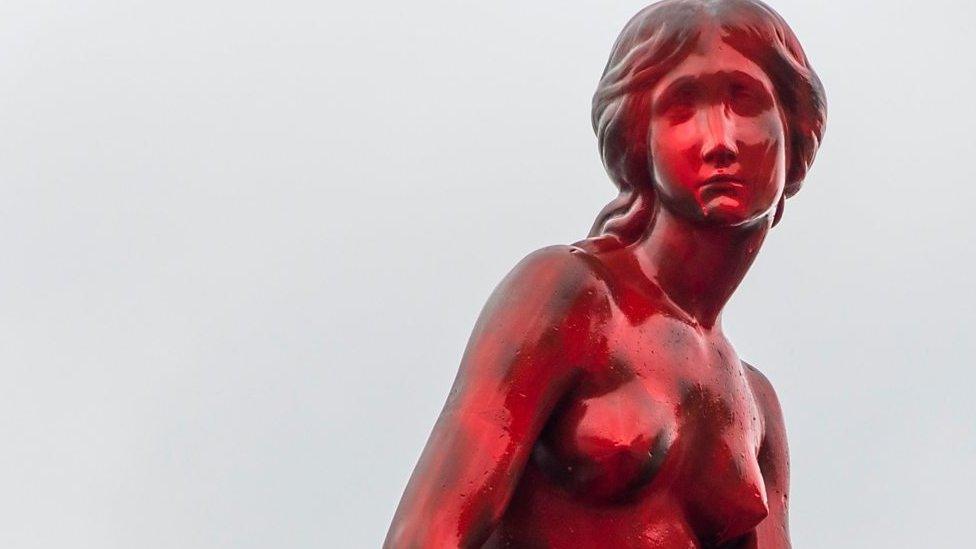Little Mermaid: Copenhagen statue a target for vandals
- Published
Little Mermaid was turned blue and white by protesters in the latest attack
Copenhagen awoke to the news that the Little Mermaid - the Danish capital's most famous statue - had been covered in blue and white paint.
It is an ignominious look for the elegant statue, which has gazed wistfully across the water for more than a century.
But it is also not the worst thing that has happened to the mermaid in its history. In fact, it's not even the first time she has been vandalised in the last month.
The Little Mermaid has been decapitated (twice), had her arm sawn off and been blown up.
And, to add insult to injury, she has even found herself banned from Facebook for breaching its nudity guidelines.
So how did one of the world's most iconic statues become a focus for vandalism and protest?
Blown up, beheaded - survived
Sculptor Edvard Eriksen could not have imagined what would befall his statue, inspired by the Hans Christian Anderson fairytale, when it was commissioned in 1909.
Four years later, the 175kg (385lb) bronze statue was presented to the city of Copenhagen, and it was decided she would be place at Langelinje Pier, watching over the harbour and its ships.
And, for the next half century, she was fine.
But then, in April 1964, the Little Mermaid was attacked for the first time: beheaded with a hacksaw.
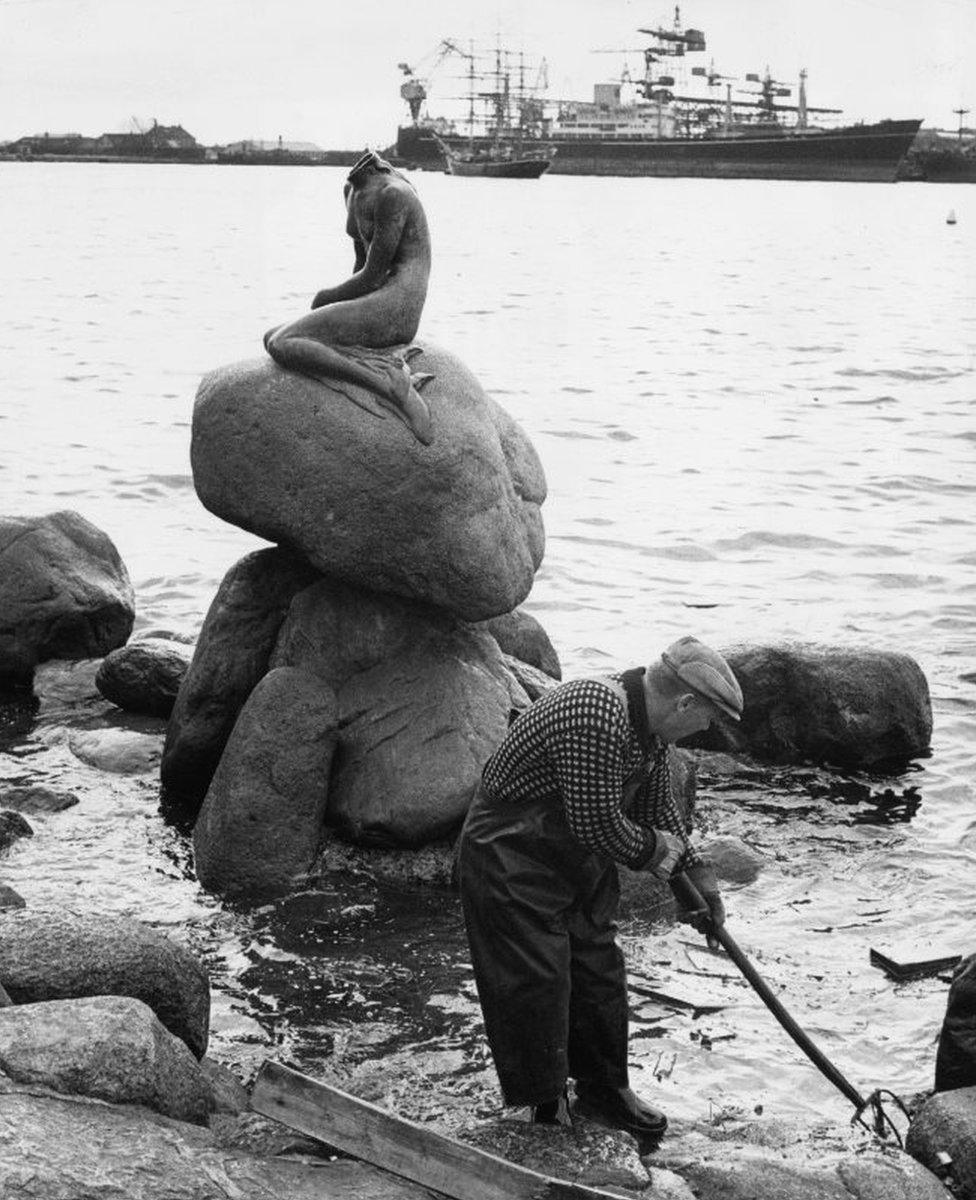
A man searches for the Little Mermaid's head in the water after it was removed in 1964
Her head, and the perpetrator of this vicious attack, disappeared into the night, never to be seen again.
More than three decades later, the artist Jorgen Nash said he was behind the decapitation. It was, he claimed in 1997, carried out in a fit of rage after the love of his life left him.
However, he was certainly not the only person to confess to the crime. The Little Mermaid is Denmark's most famous sculpture - its very own Statue of Liberty - and there were lots of people willing to take the blame for the "murder", apparently in return for their own moment in the limelight.
But while they may have been willing to take the blame, it was another 20 years before someone had the audacity to attack the statue once more.
This time, her arm was sawn off. But this was no political protest. Instead, it appears to have been the act of two drunken young men who shamefacedly returned the appendage two days later.
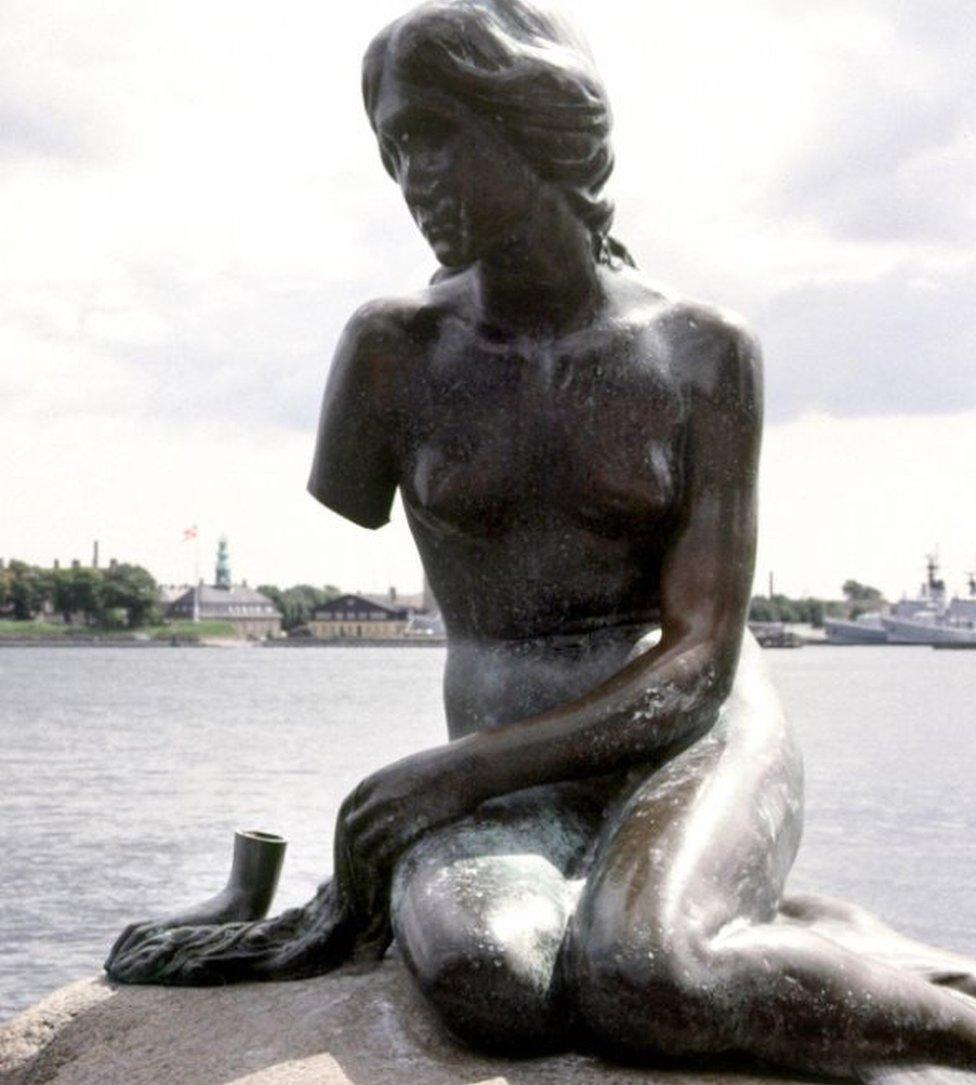
The mermaid lost her arm in 1984 - but it was returned a few days later
Just six years after this, another attempt was made to remove the Little Mermaid's replaced head. It was unsuccessful, but left her with a deep "wound" in her neck.
Then, in 1998, a third attempt to decapitate the statue was made. As in 1964, the culprits successfully made off with the head, external.
Her beheading was not taken lightly: murder squad detectives were drafted in to attempt solve the mystery.
It looked like they might have found their culprits with relative ease: within days, the previously unheard of Radical Feminist Fraction said they had done it to "create a symbol of sexually fixated and misogynist male dream of women as bodies without heads".
But Danish police weren't convinced, and as in previous decapitations, the identity of the vandal remains a mystery.
Denmark's Little Mermaid has suffered many indignities over the years
However, the head was returned, left outside a Danish television centre anonymously - and so was in place when someone blew her off her rock five years later.
In September 2003, and the grand old age of 90, she was found floating face down in the harbour, external.
This time the attack was rumoured to have been the work of anti-war protesters, angry at Danish involvement in Iraq.
But again, despite the murder squad's best efforts to discover the identity of the culprits, exactly who they were - and what their motives were - remain a mystery.
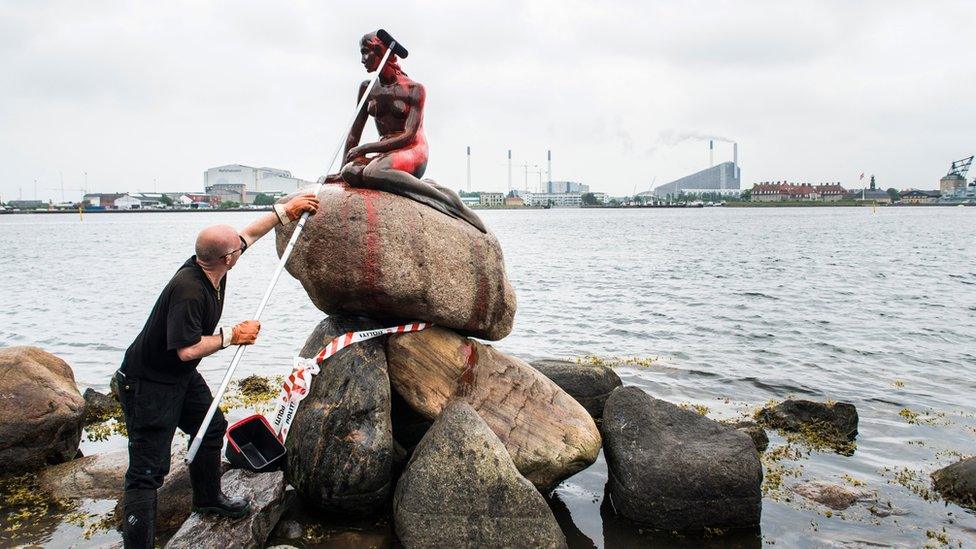
The Little Mermaid has not been dismembered in recent years, but she has got used to being covered in paint
For the last 14 years, the statue has managed to keep herself in one piece. She has, however, worn a burqa, held a sex toy and been covered in paint - twice this year alone.
At least the motives for the vandalism have become clearer in recent years: for example, the burqa was a statement against Turkey joining the EU, and the red paint of two weeks ago was in protest at whaling in the Faroe Islands.
This latest act of vandalism was accompanied by the words "Befri (sic) Abdulle", or "Free Abdulle".
It is not entirely clear, but appears to reference the case of 36-year-old Abdulle Ahmed, a Somali citizen who has spent more than decade at a Danish psychiatric hospital, allegedly forced to take medication over reported violence against caregivers.
Will it be the last? It seems unlikely as making a political statement is all the more effective if made on one of the city's top tourist attractions.
But Copenhagen's mayor for culture, Carl Christian Ebbesen, has a simple suggestion for how it could be prevented in the future: CCTV.
"I believe that video surveillance can help to have a preventive effect and gather evidence, if it should happen again," he told Danish news site DR.dk [in Danish, external].
- Published23 August 2013
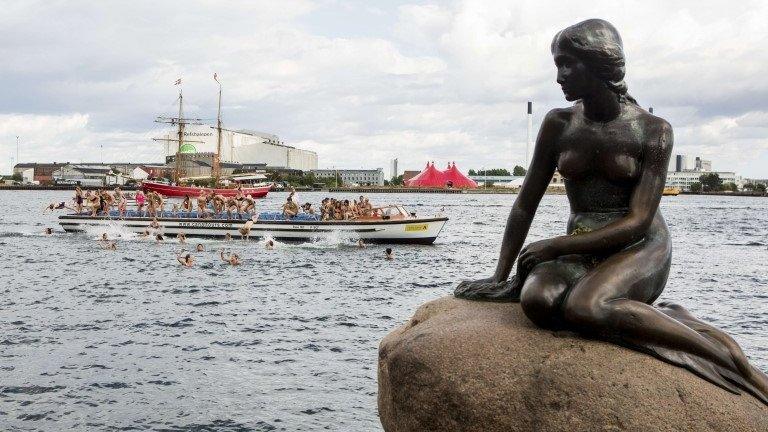
- Published2 September 2016

- Published30 May 2017
